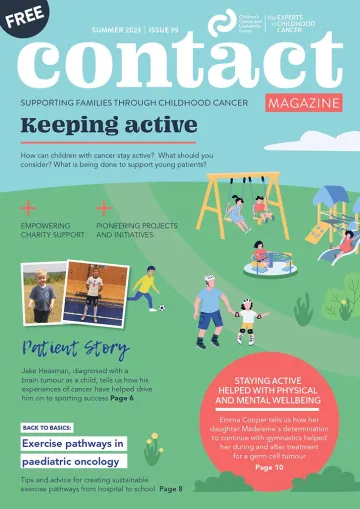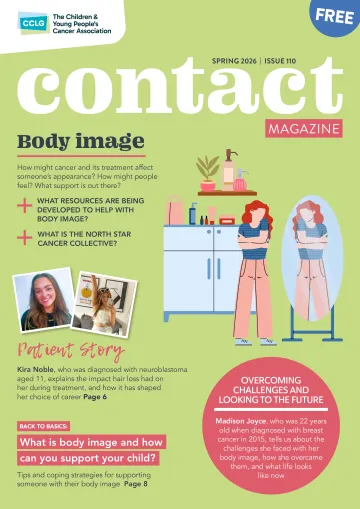Cyclists Fighting Cancer (CFC) supports children and young people living with and beyond cancer in the UK by giving them new, lightweight bikes, specially adapted trikes and cycling equipment. Liz Pharoah, CFC trustee and cancer exercise specialist, tells us more.
A bike or trike is a way of being physically active that is fun, sociable and has a low impact on bones and joints. Being out and about allows the rider to build stamina, muscle strength and endurance, and improve balance and coordination all while having fun. This is especially important as childhood cancer treatments can have detrimental impacts on the mental and physical health of a child.
Providing a bike or trike to a child has been reported by parents to bring:
- 93% improvement in mood
- 89% increase in confidence
- 81% boost in self-esteem
- 95% increased strength
- 79% better balance
- 88% improved stamina
- 75% enhanced coordination
We recognise that often cycling is a sociable activity and having another family member with a bike will encourage more physical activity for the child affected by cancer, so we also provide bikes for other family members, such as siblings. In fact, 94% of parents reported an increase in the amount of time spent active outside with a sibling after receiving a CFC bike.
Being a trustee for CFC is such a rewarding role. Nothing quite beats seeing the smiles on children’s faces (and parents!) when they ride a bike for the first time since diagnosis and the sense of achievement in taking part in this ‘normal’ activity. It’s great to know that the charity has played a part in making those smiles and having already helped over 8,500 families since 2005, we can’t wait to see many more smiles from proud new bike or trike owners.
Max
Seven-year-old Max has several disabilities as a result of a rare form of metastatic ependymoma. He received his specially adapted trike and trailer in 2021. Eighteen months later, Max is now pedalling and steering independently and is a member of a cycling club, attending with a friend from school.
His mum said:
Having this trike has brought normality to our lives. Max can bike like any other child can and our family can go out together for bike rides. The joy and memories the trike has brought us are truly priceless.
Emma
Nine-year-old Emma was diagnosed with metastatic Ewing sarcoma in her right femur which is now severely damaged. She has reduced flexibility in her right knee and is no longer able to run, jump or do anything that would result in a strong impact on her legs.
Her mum said:
Our physiotherapist mentioned she could see her leg muscles are not wasting as quickly/strengthening and she even puts her feet down a bit flatter. What a difference the trike has made already to Emma!
Mollie
Mollie was diagnosed, aged three, with parameningeal rhabdomyosarcoma behind her left eye, causing her to lose sight in it. As she learnt to cycle, she lacked confidence, was very anxious and didn’t enjoy it, saying her bike felt “wobbly”. However, as soon as she got on her new bike, she became so much more confident, cycling two-and-a-half miles!
Her mum said:
The correct bike has really made a huge difference for Mollie, and it also reflects that cancer isn’t over once chemo stops. Late effects impact kids’ lives in many ways and CFC recognises this and helps children be children despite their diagnosis.
Find out more about Cyclists Fighing Cancer (CFC)
Or email info@cyclistsfc.org.uk
From Contact magazine issue 99 - Summer 2023


